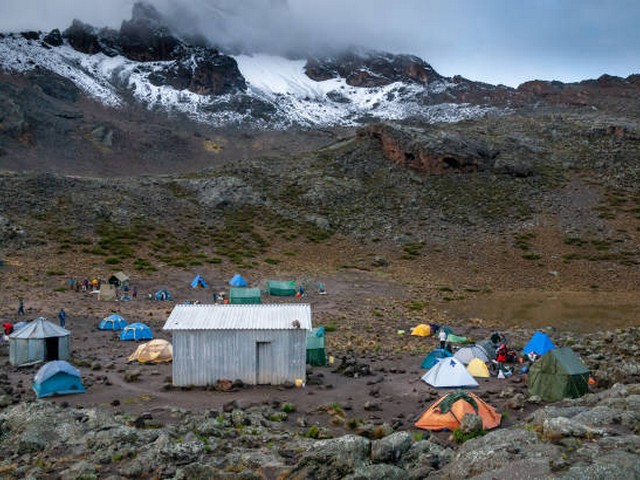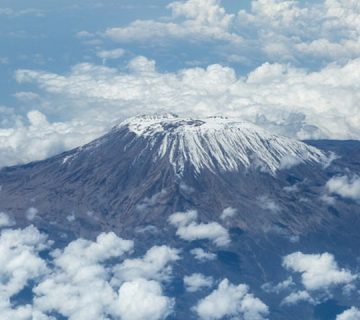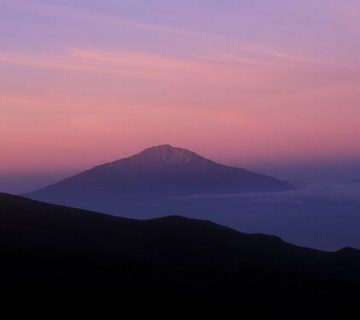Eco-tourism Initiatives in Kilimanjaro National Park: A Path to Sustainability
Nestled in the heart of Tanzania, the majestic Mount Kilimanjaro is not only a premier destination for trekkers worldwide but also a vibrant hub for eco-tourism initiatives. At Kilimanjaro Centre for Trekking and Ecotourism (KCTE), we believe in celebrating and preserving the natural beauty of Kilimanjaro National Park by embracing sustainable tourism practices. This blog explores the innovative eco-tourism initiatives that are making a difference in the park, offering you a chance to contribute to conservation while experiencing the adventure of a lifetime.
Why Eco-Tourism Matters in Kilimanjaro
Eco-tourism is not just a buzzword; it’s a commitment to the environment and local communities that thrive around iconic landscapes like Mount Kilimanjaro. The region’s unique biodiversity and cultural heritage are under constant threat from climate change and human activities. By promoting eco-tourism, we aim to create a positive impact that ensures the preservation of these invaluable resources for future generations.
Preserving the Roof of Africa
Mount Kilimanjaro is often referred to as the "Roof of Africa," standing proudly as the highest peak on the continent. The diverse ecosystems ranging from lush rainforests to alpine deserts are home to unique flora and fauna that require our utmost attention and protection. Eco-tourism initiatives here focus on minimizing footprints and enhancing visitors’ awareness about the importance of conservation.
Key Eco-Tourism Initiatives at Kilimanjaro National Park
1. Waste Management Drives
Proper waste management is crucial to maintaining the ecological balance of Kilimanjaro National Park. At KCTE, we organize regular clean-up expeditions ensuring trails and campsites are free from litter. Our Leave No Trace policy encourages trekkers to carry back everything they bring into the park.
2. Water Conservation Techniques
Water is a precious resource on Mount Kilimanjaro. Our guided tours include teachings on water conservation, using water sparingly, and preventing contamination of natural water sources which are vital for the wildlife and communities depending on them.
3. Supporting Local Communities
A significant aspect of our eco-tourism approach involves supporting the local economies. KCTE collaborates with local villagers to provide authentic cultural experiences for trekkers, from traditional meals to handmade crafts, ensuring that your visit directly benefits the indigenous population.
4. Solar Energy Utilization
To reduce the dependency on non-renewable energy sources, many of our campsites are equipped with solar panels. This initiative not only decreases the carbon footprint but also sets a standard for renewable energy usage in remote areas.
5. Flora and Fauna Conservation
Collaborating with conservationists, KCTE actively participates in programs designed to protect and study the endangered species of Kilimanjaro. Our tours offer educational insights into the significance of preserving these rare ecosystems.
How Eco-Tourism Enhances Your Trekking Experience
Immersive Nature Encounters
By choosing eco-tourism, you opt for an immersive experience that allows you to connect deeply with nature. Our guides are trained to offer insights about the ecological and cultural significance of every aspect of Kilimanjaro, turning your trek into an enlightening journey.
Healthier Trails, Richer Experiences
Eco-tourism initiatives ensure that the trails and surrounding habitats are kept in pristine condition, offering a more enjoyable and visually richer hiking experience. Cleaner trails mean healthier ecosystems, which improve the quality of your trek.
A Sense of Contribution
There is a profound satisfaction that comes from knowing your travel choices help preserve the natural beauty of your destination. Each step you take on Kilimanjaro is a step towards conservation, thanks to your support of eco-tourism.
Plan Your Sustainable Journey with KCTE
Ready to embark on an unforgettable adventure that also gives back to the planet? Kilimanjaro Centre for Trekking and Ecotourism (KCTE) is your trusted partner in planning a sustainable trek that aligns with your values of conservation and responsible travel. Our expert guides ensure that your journey to the summit of Kilimanjaro is not only successful but also enriches your understanding of the delicate balance of nature.
FAQs About Eco-Tourism in Kilimanjaro
What can I do to participate in eco-tourism?
Choose eco-friendly tour operators like KCTE, follow guidelines provided by your guides, support local businesses, and be mindful of your environmental impact.
Are eco-tourism initiatives more expensive?
While some eco-tourism options might have a slightly higher upfront cost due to the sustainable practices they employ, they offer greater value by ensuring your travel has a positive impact and often provide a richer, more intimate travel experience.
How does eco-tourism benefit the local community?
Eco-tourism initiatives contribute to local economies by employing local guides, purchasing local products, and supporting community projects, which helps to uplift the entire community.
Can I see wildlife during my trek?
While wildlife sightings are not guaranteed, eco-tourism practices improve the chances of encountering wildlife by preserving their natural habitats and reducing disturbances.
In conclusion, eco-tourism is not just about visiting a destination; it’s about making a meaningful connection with the environment and its inheritors. By embracing eco-tourism initiatives, you contribute to the sustainability of Kilimanjaro National Park. Book your Kilimanjaro climb with Kilimanjaro Centre for Trekking and Ecotourism (KCTE) and take the first step towards a journey that leaves a positive footprint on the world. Embark on an adventure where every step counts. Join us in preserving the grandeur of Kilimanjaro for years to come.




